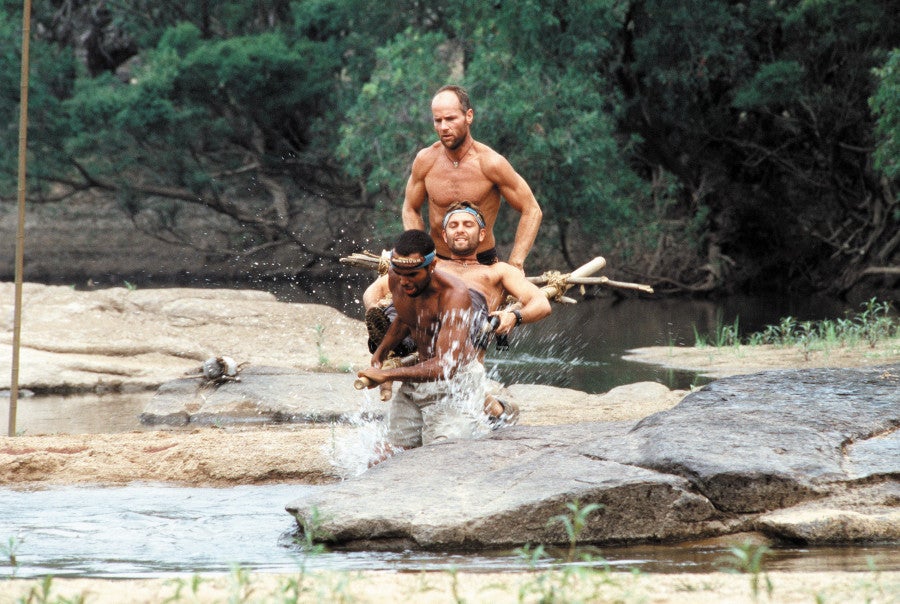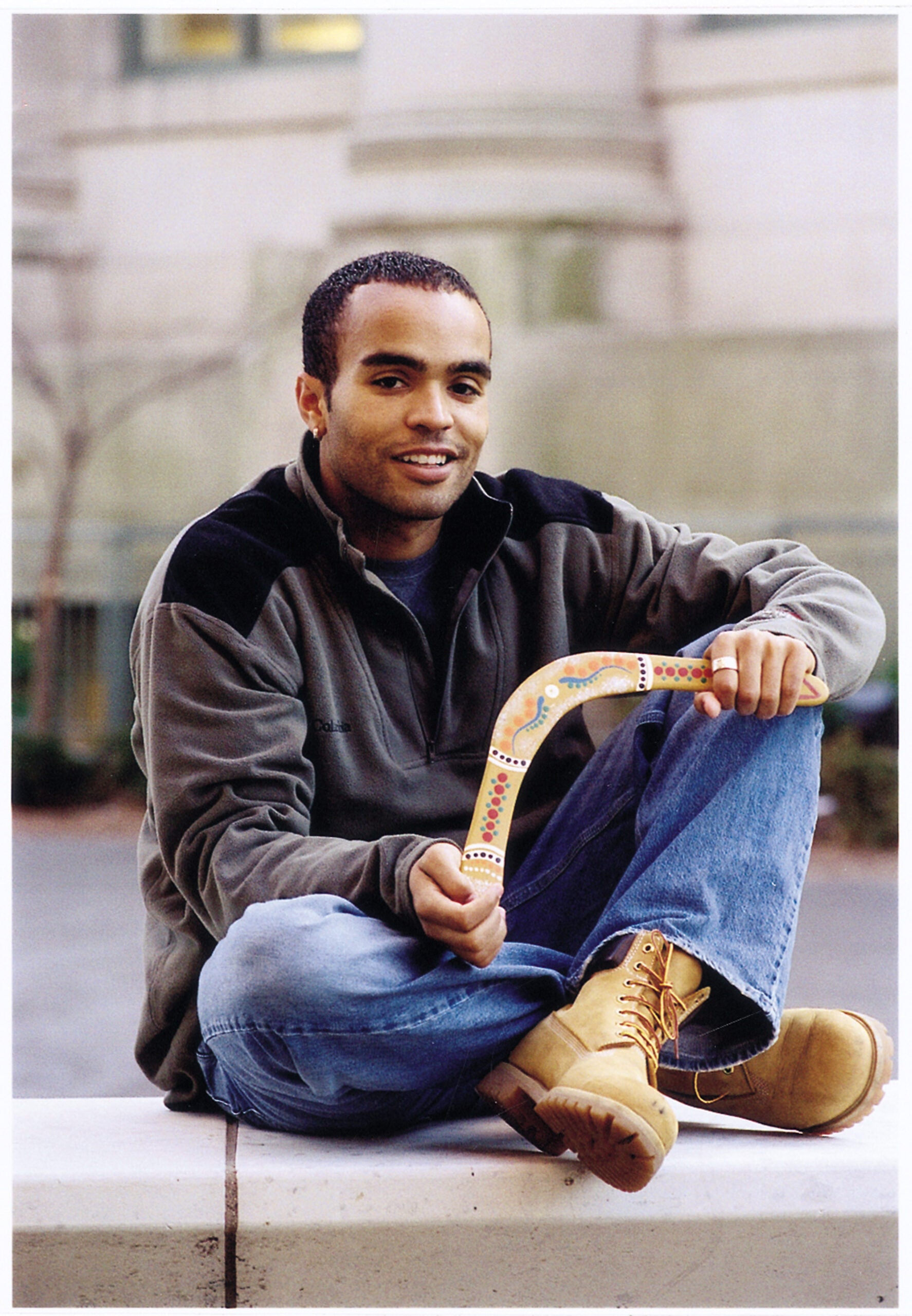
What’s the difference between Harvard Law School and Survivor? Harvard Law School is easier to get into, and Survivor is easier to get kicked out of.
Nick Brown ’02 should know. He’s the only person to experience both, one famed for an intense, competitive, even cutthroat atmosphere, and the other, well . . .
For those unfamiliar with the Survivor sensation, the CBS show pits 16 people against each other in an isolated locale, where they brave the elements and each other for the chance to win $1 million. Brown didn’t win the jackpot, but he won a measure of fame. And though he’s the first to say that it’s only a game show, the experience changed his life in ways he never imagined.
“I don’t think any of us knew what we were a part of,” said Brown. “Even now, I’m surprised how expansive Survivor is. It’s [used as] an analogy for politics, for the weather, for anything these days.”
Brown can’t be blamed for not having quite grasped the phenomenon. Before he applied for the show, he hadn’t watched the first Survivor series. But the idea of escaping to the outback of Australia–and delaying his responsibilities at HLS–motivated him to send in an audition tape. The fact that the Steilacoom, Wash., native was an HLS student, an Army officer, and a model catapulted him to the forefront of the other 50,000 applicants vying for a spot. Even after surmounting those odds, Brown still had to “outwit, outplay, outlast” 15 contestants, real people who nevertheless filled certain roles for the public: Jerri, the abrasive actress; Colby, the sexy cowboy; and Rodger, the Bible-toting bumpkin. And then there was Brown, typecast after another contestant claimed he didn’t do his share of work.
“Most people think Nick’s the lazy guy,” said Brown. “You know you’re going to be edited, and you know people will be saying stuff behind your back. It’s just that lazy was the one thing I never, ever expected. Because I was really quiet, the editors had no story line to apply to me, so it became, Let’s make the Army officer and Harvard Law student lazy.”
His quietness and desire to blend with the scenery was intentional, a strategy that ran counter to his instinct to take charge. “Being really young, I was cognizant of not stepping on any toes. I figured they’d think I was this young brash Harvard kid, and I thought that would be the wrong way to go,” Brown said.
The strategy worked, he said: nine contestants were voted out before he became the victim of an alliance among others determined to pick off their rivals. By that time, Brown, sleep- and food-deprived and in ill health, said that the fun had gone out of the experience.
That doesn’t mean he has any regrets. Now back at HLS after taking the first semester off to compete in the show, Brown followed his exploits–and people’s reactions to him–as the series was aired from late January to early May. Instead of Nick the student, he became Nick the Survivor guy, with the attendant benefits and pitfalls: the second glances, the autograph requests, the media tour, and the pressure to always, always be on his best behavior lest the tabloids report on his misdeeds.
He’s enjoying the attention for now but doesn’t want Survivor to be the hallmark of his life either. After he completes HLS, Brown faces a four-year commitment to the Army, which paid for his undergraduate education at Morehouse College through the ROTC program. Then, Brown may practice law in a firm, and he may also pursue a career in politics. His TV experience won’t get him elected, he said, but it certainly will increase his name recognition.
The Survivor experience also gave him something else, said Brown. It made him more willing to take a risk, to not necessarily tread a straight line on the path to success. Most HLS students are so one-tracked, Brown said, that they don’t deviate from their own life strategy. He’s glad that he did.
Yet Survivor also made him appreciate Harvard Law School more. For that’s another difference between HLS and Survivor. Given the proper perspective, one experience can seem warm and fuzzy and the other can seem, well . . .
“I find Harvard to be a much more supportive place,” said Brown. “If you have a bad class or a professor who rubs you the wrong way, you can go home and vent to your friends and family. If you have a bad day on Survivor, you’d vent to the people who are going to stab you in the back, so you can’t vent. You keep quiet like I did or lash out like Jerri did. It’s definitely a more supportive environment at Harvard than in the outback.”
